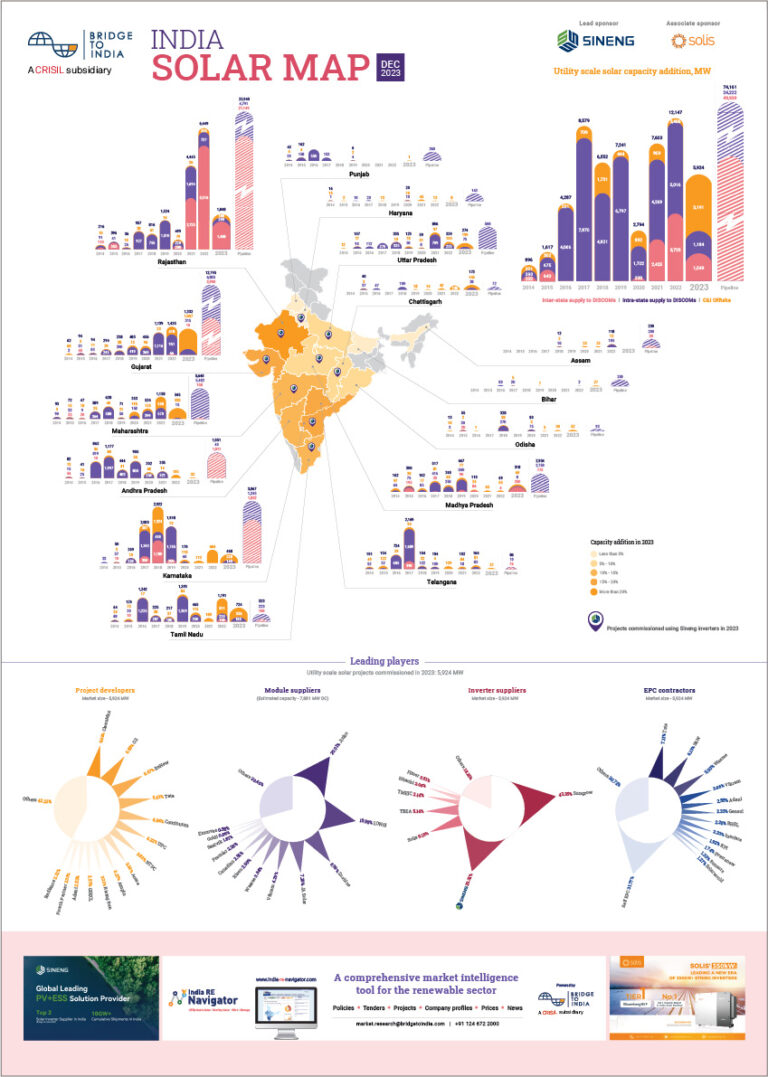Last week, MNRE issued a clarification to its guidelines for competitive bidding of solar PV projects. The clarification allows inclusion of changes in duties and other cesses in Change in Law provisions in power purchase agreements. It effectively means that risk of any new duties or changes in duties including safeguard and/or anti-dumping duties arising after the “last date of bid submission” would be borne by the power purchasers ie DISCOMs.
- The protection offered to developers is highly welcome even if it poses some operational challenges and doesn’t eliminate the risk entirely;
- It paves way for the tender pipeline, stuck for many months, to start moving forward;
- The status of projects auctioned without any explicit protection remains unclear;
The MNRE move was much needed as duty uncertainty is highly damaging to the industry and is not expected to go away anytime soon. The safeguard duty announcement is pending a High Court decision in response to an appeal by Shapoorji Pallonji. Meanwhile, the Indian Solar Manufacturers Association have withdrawn the anti-dumping duty petition but plan to refile it in the coming weeks. The tender pipeline is getting clogged as a result with 10,145 MW of aggregate capacity awaiting allocation.
Table: Project development tenders awaiting allocation

Source: BRIDGE TO INDIA research
Note: In addition to these tenders, there is a 100 MW EPC tender by THDCIL pending allocation.
Unfortunately, the MNRE clarification is not the end of this matter. For one, some states/ DISCOMs may decide that the duty risk is too high for them to bear and hence, choose not to incorporate the revised provision and/or hold off on their tender programs. Two, protection is provided only to projects where the revised change in law provision is incorporated in the tender documents. There is still no clarity on who will bear duty risk in projects auctioned without formal protection. Moreover, change in law provisions by nature are fractious. The process for determination of compensation is usually messy and protracted. Final decision by the respective central/ state regulator can easily take months or even years.
That may explain why Karnataka, despite offering full change in law protection in its last two tenders, got a weak response from the market. NTPC has already accepted the change for its latest Andhra Pradesh tender. We expect SECI also to do so shortly although DISCOMs, the ultimate offtakers, may not be so keen on the move.
Despite all the ongoing uncertainties and challenges, the MNRE clarification is positive news. Together with the latest clarification from the Ministry of Finance that customs duty of 7.5% is not applicable to most solar module imports, it offers welcome relief for the industry.












